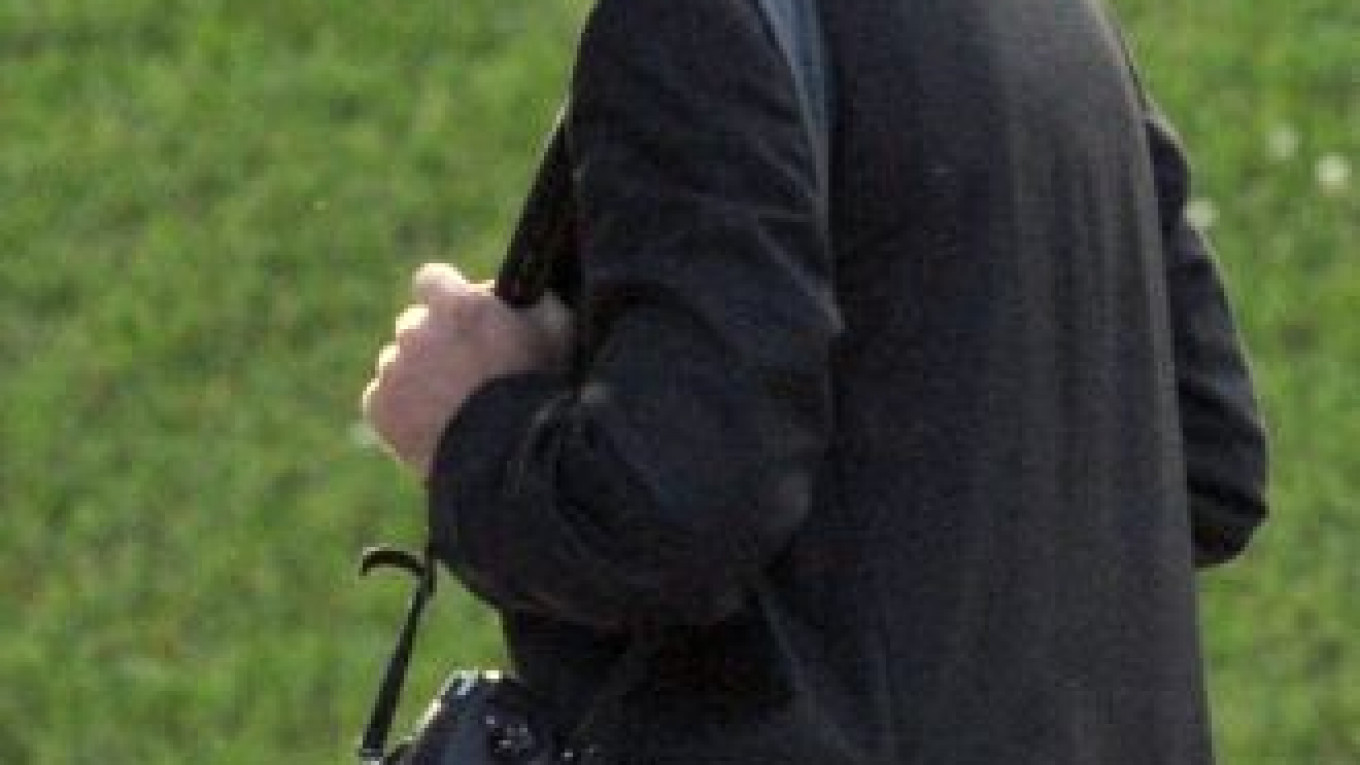TBILISI, Georgia — Three Georgian photographers were found guilty Friday of spying for Russia but were released from court after receiving suspended sentences in a 45-minute trial.
Irakli Gedenidze, a personal photographer of the Georgian president, Zurab Kurtsikidze of the European Pressphoto Agency, and Georgy Abdaladze, a photographer for the Georgian Foreign Ministry who has also freelanced for The Associated Press, were arrested and charged with espionage this month. Despite initial claims of innocence, all three later confessed to supplying Russian intelligence with sensitive information.
The men were greeted outside the court by fellow journalists and tearful relatives who kissed and hugged them. They had no immediate comment. The defendants' arrests had caused outrage in Georgia and prompted calls to declassify the case files.
The case also aggravated already tense relations between Georgia and Russia, which has dismissed the spy arrests as a fabrication.
On Friday, the defendants signed a plea agreement in which the prosecutors asked for suspended sentences for them, citing the value of the information they had disclosed to the investigators. Shortly afterward, Judge Zubab Esebula convicted the three photographers of spying and released them with suspended sentences.
The judge gave a four-year sentence to Abdaladze and Gedenidze, three years to Kurtsikidze, and 18 months to Gedenidze's wife, Natia, who was found guilty of abetting espionage.
The sentences are short for spying convictions. They also do not appear to correlate to investigators' earlier allegations that Kurtsikidze was the ringleader.
Prosecutors had first said the defendants would be tried on Sept. 1. Friday's sudden plea-bargain agreement and trial led some to question the legitimacy of the case.
Eka Beseliya, head of the Solidarity with Illegal Prisoners movement, said the government suffered "a defeat" in trying to find any tangible proof of the photographers' guilt.
"They had to rush through it because they had no real proof, " she said. "There are good reasons to review this case and hear it again because there is no evidence against those men."
But Soso Tsintsadze, rector of the privately owned Diplomatic Academy, said that "it's quite possible that the photographers gave so much compromising information about Russian intelligence services that it earned them freedom."
Prosecutors had accused EPA photographer Kurtsikidze and Foreign Ministry photographer Abdaladze of maintaining contact with Russian intelligence and supplying them with secret information. Presidential photographer Irakli Gedenidze and his wife have been accused of helping Kurtsikidze and Abdaladze do that.
The information allegedly included the floor plans of offices used by Georgian President Mikheil Saakashvili and details of his work schedules and travel plans.
Just before Friday's 45-minute trial, the prosecutor's office announced the plea bargain agreement. Prosecutors said the photographers not only pleaded guilty but also provided Georgian officials with important information about Russian agents working under cover in Georgia, their immediate plans and methods of communication.
The prosecutor's office also said it would make public some files from the case, proving there was evidence of the men's guilt.
A Message from The Moscow Times:
Dear readers,
We are facing unprecedented challenges. Russia's Prosecutor General's Office has designated The Moscow Times as an "undesirable" organization, criminalizing our work and putting our staff at risk of prosecution. This follows our earlier unjust labeling as a "foreign agent."
These actions are direct attempts to silence independent journalism in Russia. The authorities claim our work "discredits the decisions of the Russian leadership." We see things differently: we strive to provide accurate, unbiased reporting on Russia.
We, the journalists of The Moscow Times, refuse to be silenced. But to continue our work, we need your help.
Your support, no matter how small, makes a world of difference. If you can, please support us monthly starting from just $2. It's quick to set up, and every contribution makes a significant impact.
By supporting The Moscow Times, you're defending open, independent journalism in the face of repression. Thank you for standing with us.
Remind me later.






